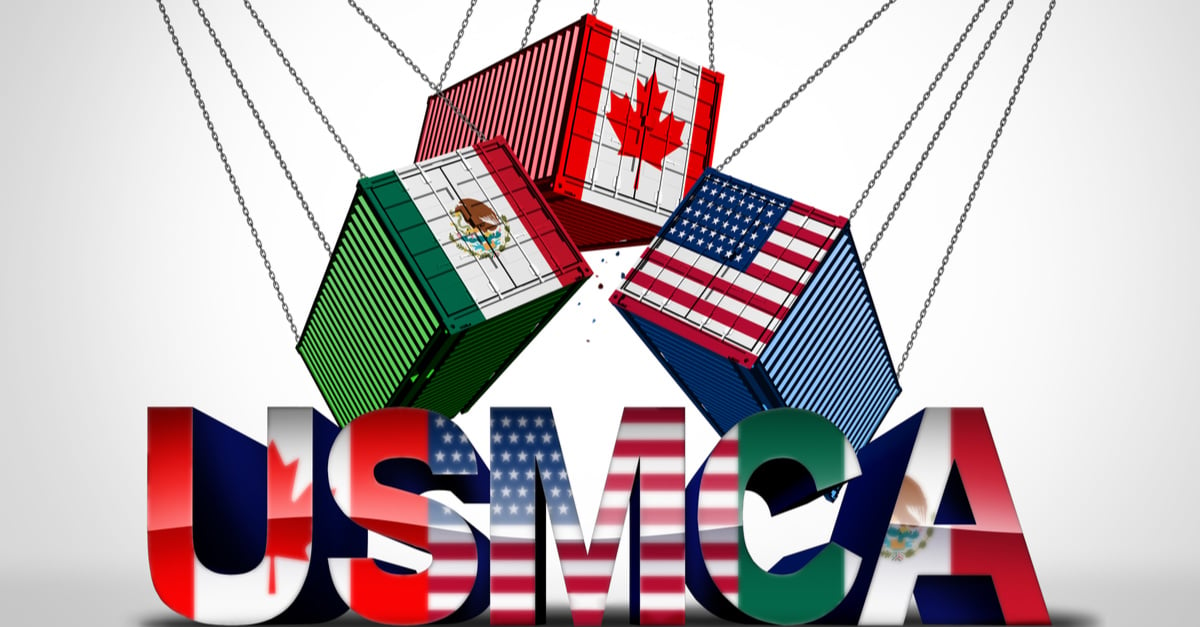
International shipping is a critical part of modern commerce, connecting businesses across the globe. But with that global reach comes inherent complexities, making clearly defined responsibilities essential for smooth and successful import operations. That's where Incoterms come in.
These standardized terms provide a common framework for buyers and sellers worldwide, clarifying who is responsible for each step of the shipping process, from initial pickup to final delivery.
What are Incoterms?
Incoterms, short for "International Commercial Terms," are a set of standardized trade terms defined by the International Chamber of Commerce (ICC). These terms serve as the essential building blocks of international trade contracts, providing a common language for buyers and sellers to understand their respective roles and responsibilities in the movement of goods.
Think of Incoterms as a universal guidebook for global trade. They clarify critical aspects of international shipments, such as:
-
Point of delivery: Where exactly the responsibility for the goods transfers from the seller to the buyer.
-
Cost allocation: Who is responsible for the various costs involved, including transportation, insurance, and customs duties.
-
Risk assumption: When the risk of loss or damage to the goods shifts from the seller to the buyer.
The ICC categorizes Incoterms based on the mode of transport. Some Incoterms apply to any mode of transport, such as EXW, FCA, CPT, CIP, DAP, DPU, and DDP. Others are specifically designed for sea and inland waterway transport, including FAS, FOB, CFR, and CIF.
Why Are Incoterms Important?
You might be thinking, "Okay, but why are these Incoterms so important for me?" Well, whether you're a seasoned importer or just starting out, understanding Incoterms is crucial for successful international trade. Here's the deal:
-
They prevent costly surprises. Imagine this: you import a shipment of goods and then get hit with unexpected fees for customs duties or port handling charges. Incoterms help avoid these situations by clearly defining who's responsible for each cost.
-
They protect your business. Incoterms clarify when the risk of loss or damage to goods transfers from the seller to the buyer. This helps you make better decisions about insurance and protect your investment.
-
They make things run smoothly. By providing a clear framework for responsibilities, Incoterms help to streamline the entire shipping process. This means fewer delays, fewer headaches, and more efficient operations.
Ultimately, by providing this clear framework, Incoterms help to minimize misunderstandings, disputes, and potential legal complications in international trade. They are essential tools for both buyers and sellers to manage risk, control costs, and ensure smooth and predictable transactions.
Key Incoterms for Inbound Freight
Let's delve into some of the most important Incoterms for effective inbound freight management:
EXW (Ex Works)
Under EXW, the seller's responsibility is minimal. They are only required to make the goods available at their premises or another specified location. The buyer assumes responsibility for all the remaining steps, including loading the goods, transportation, export and import clearance, and final delivery.
This means the buyer also bears the full risk of loss or damage during transit. EXW might be suitable for inbound freight when you have strong control over your logistics and prefer to manage the entire shipping process, potentially securing better rates or utilizing preferred carriers. For example, a large retailer with established global logistics operations might opt for EXW to import goods from a smaller supplier.
FCA (Free Carrier)
With FCA, the seller is responsible for delivering the goods to a carrier named by the buyer at a designated location. This means the seller handles export clearance, but the risk is transferred to the buyer once the goods are handed over to the carrier.
FCA is often used when the buyer wants to consolidate shipments or utilize their own negotiated freight rates. Imagine a manufacturer importing raw materials from overseas. Using FCA, they can arrange for the goods to be delivered to a consolidation point, combining multiple shipments for cost savings.
CIP (Carrier and Insurance Paid To)
CIP requires the seller to arrange and pay for carriage and insurance to a named destination. However, the risk passes to the buyer when the goods are handed over to the first carrier. This Incoterm is beneficial when you want the seller to handle the main carriage but retain control over the final delivery and import clearance.
For instance, an importer of high-value electronics might choose CIP to ensure the goods are insured by the seller during the main transit, while still managing the final leg of the journey and customs procedures themselves.
DAP (Delivered at Place)
Under DAP, the seller is responsible for delivering the goods to a named place, ready for unloading. This includes handling most of the transport and costs, but the buyer is responsible for unloading, import clearance, and any applicable duties and taxes. DAP is a popular choice for door-to-door shipments where the buyer wants a streamlined process.
Consider a furniture company importing ready-to-assemble furniture. Using DAP, they can have the goods delivered directly to their warehouse, ready for unloading and distribution, while retaining control over the final import steps.
DDP (Delivered Duty Paid)
DDP places the maximum responsibility on the seller. They are responsible for delivering the goods to the named place, cleared for import, and with all duties and taxes paid. This is the most convenient option for the buyer but also typically the most expensive.
DDP might be preferred when importing goods from a supplier with extensive experience in handling import formalities in your country. For example, a fashion boutique importing a small collection of designer clothing from Europe. Using DDP, they can have the goods delivered directly to their store, with all import complexities handled by the seller.
Considerations When Choosing Incoterms
Selecting the right Incoterms for your inbound freight logistics isn't a one-size-fits-all situation. It requires careful consideration of several strategic factors:
Negotiating Power
-
Strong negotiating position? While you might have the leverage to negotiate favorable terms like DDP, where the seller takes on maximum responsibility, it's crucial to maintain transparency in your costing. Always strive to understand the true cost of the goods separate from the shipping costs. This allows you to make informed comparisons and avoid overpaying, even when the seller handles all logistics. For example, if you know the EXW (Ex Works) price, you can compare it to the DDP price to assess the true cost of the seller's services. Keep in mind that opting for DDP means relinquishing control over shipping arrangements and potentially accepting longer transit times dictated by the seller.
-
Limited leverage? Be prepared to be more flexible and consider Incoterms like FCA or EXW, which may offer cost savings but require you to take on more responsibility in the shipping process.
Risk Appetite
-
Risk-averse? Prioritize minimizing risk with Incoterms like DDP, where the seller handles most responsibilities, even if it means higher upfront costs. This reduces your exposure to potential issues during transit and import.
-
Comfortable with risk? Explore options like EXW or FCA, which give you greater control and potential cost savings but also shift more responsibility (and risk) onto your shoulders.
Cost Optimization
-
Seeking the most economical option? Don't just look at the initial price tag. Conduct a thorough analysis of total landed costs under different Incoterms. This includes transportation, insurance, customs duties, and any additional fees. EXW might seem cheaper upfront, but factor in all associated costs before making a decision.
-
Balancing cost with convenience? Evaluate whether the convenience of certain Incoterms, like DAP (seller delivers to a specified place) or DDP (seller handles duties and taxes), outweighs potentially higher initial costs.
Supply Chain Efficiency
-
Prioritizing speed and efficiency? Choose Incoterms that streamline your logistics. CIP, where the seller arranges main carriage and insurance, can be a good choice for minimizing delays and ensuring smooth transit, especially for time-sensitive goods.
-
Need flexibility in your supply chain? Consider Incoterms like FCA, which allows you to choose your preferred carrier and potentially consolidate shipments for greater efficiency.
Compliance and Legal
-
Ensure clarity and avoid disputes. No matter which Incoterm you choose, meticulous documentation is key. Clearly outline all responsibilities and liabilities in your contracts to prevent misunderstandings and potential legal issues.
-
Seek expert advice if needed. Navigating international trade regulations can be complex. If you're unsure about the legal implications of certain Incoterms, consult with a trade expert or inbound freight provider to ensure compliance and minimize risk.
Incoterms: Your Key to Seamless Inbound Logistics
Mastering Incoterms is essential, but here's the catch: understanding these terms before finalizing a purchase is crucial. We often see businesses negotiate product costs down to the penny, only to be blindsided by unexpected freight expenses or logistical nightmares because they overlooked the Incoterms.
Imagine this: you've secured a fantastic deal on that cutting-edge equipment from overseas. The purchase order is signed, the contract is finalized, and then... boom–you're hit with a massive freight bill or the realization that you're responsible for shipping it from across the globe.
On the flip side, your sales team might land a major international client, only to discover that offering "free shipping" (DDP) eats into your margins because of unforeseen international shipping complexities.
The takeaway? Incoterms are not just for the logistics department. They need to be part of the conversation from the very beginning – during sales negotiations, procurement processes, and contract development.
By integrating Incoterms into your broader business strategy, you can avoid costly surprises, protect your profit margins, and ensure smooth, efficient import operations.
Need help navigating these critical trade terms and integrating them into your purchasing and sales processes? Customodal offers comprehensive logistics solutions and expert advice to empower your business in the global marketplace.





